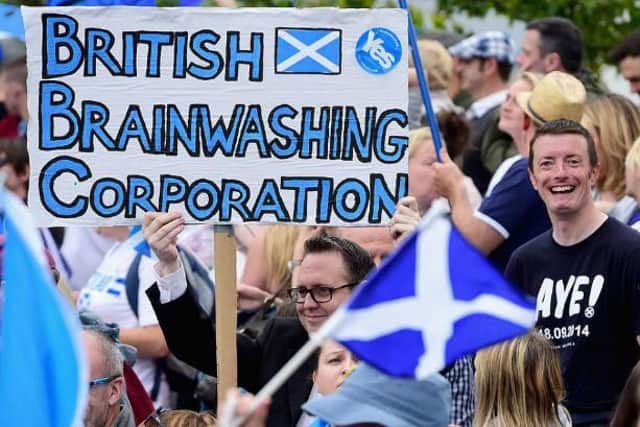Voters say there was '˜intimidation' during indyref campaign


Others who took part raised concerns about possible electoral fraud, with some suggesting that CCTV should be introduced at polling stations and counts.
The consultation responses have also raised the prospect of a second independence referendum needing a winning majority of up to 70 per cent.
Advertisement
Hide AdAdvertisement
Hide AdAnd there have been suggestions that arrangements for a future plebiscite should include a minimum turnout of 66 to 85 per cent before the vote can be endorsed. Some participants called for the SNP Government to press ahead with a referendum without the approval of Westminster through a section 30 order.
Nicola Sturgeon revealed this week that she was putting the referendum Bill on hold in the aftermath of the general election result which saw the SNP lose 21 seats in a campaign dominated by the constitution. But she maintains a second referendum is still likely to be held before 2021.
The publication of the consultation responses today also reveals demands from ex-pat Scots to be allowed to vote after they were frozen out in 2014, while EU citizens living here received the franchise.
The document finds that a "significant minority" commented on the prospect of simple majority being enough to sway the outcome.
"If respondents raised this issue, it was more common for them to argue against using a simple majority," it states.
"Within this group, the main argument put forward was that major constitutional change should not be taken forward on the basis of a simple majority, particularly when this might be combined with low voter turnout."
A range of suggestions for turnout or threshold requirements included:
:: A winning threshold of between 55 per cent and 70 per cent
Advertisement
Hide AdAdvertisement
Hide Ad:: A winning deferential of between 10 per cent and 20 per cent
:: A minimum turnout of between 66 per cent and 85 per cent
A referendum would need the approval of the UK Government at Westminster, which controls the constitution, through a Section 30 order. Nicola Sturgeon has accepted this but there are demands in the consultation to press on without this by some respondents.
"Some within this group expressed concern about perceived UK Government/UK establishment `interference' in the referendum, saying that they did not trust the UK Government."
